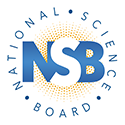

The NSF Graduate Teaching Fellows in K-12 Education (GK-12) (NSB-00-61). Under this program, academic institutions that offer graduate degrees in science, mathematics, engineering and technology can apply for two- to three-year awards ranging from $200,000 up to $500,000 per year. The institutions are responsible for selecting the teaching fellows. Graduate teaching fellows will receive annual stipends of $18,000, plus a cost-of-education stipend. Undergraduate fellows will receive as much as $5,000 per academic year, plus up to an additional $5,000 for service in the summer.c. The Board approved selections for the Vannevar Bush Award, the Alan T. Waterman Award, and the Public Service Award for 2000, as recommended by the selection committees.
The Inter-Agency Education Research Initiative (IERI) (NSB-00-62), is a partnership among NSF, the Department of Education and the National Institute of Child Health and Human Development. The program will support research to identify education strategies that improve the teaching and learning of reading, mathematics and science from pre-kindergarten through grade 12, especially the use of information and computer technologies in education.
National SMET Digital Library Program (NSDL) (NSB-00-63). This inter Directorate program will provide long-term support for maintenance, improvement and expansion of high-quality digital science, mathematics, engineering and technology materials for use by students and teachers at all levels.
| The Board approved the following awards: | Amount not to exceed |
| Office of the Director | |
| Office of Polar Programs | |
| A Request for Proposals (RFP) to Obtain a Follow-on Contract to Provide Helicopter for 60 months Services to Support the United States Antarctic Program (USAP) and Antarctica New Zealand (AntNZ) (NSB 00-50) | $16,000,000 |
| Office of Polar Programs | |
| International Arctic Research Center University of Alaska (NSB-00-59) |
A cooperative agreement for an amount not to exceed $15,000,000
for 36 months. As part of the cooperative agreement there will
be created an eminent advisory and oversight council to advise
NSF and the University of Alaska, Fairbanks. The NSB/CPP wishes
to be briefed on the program plan for the second year activities
early in FY2001 |
| Social, Behavioral and Economic Sciences | |
| Division of Behavioral and Cognitive Sciences | $6,560,285 for 48 months |
| Center for Integrated Study of the Human Dimensions of Global Change Carnegie Mellon University Pittsburgh, Pennsylvania (NSB 00-30) |
|